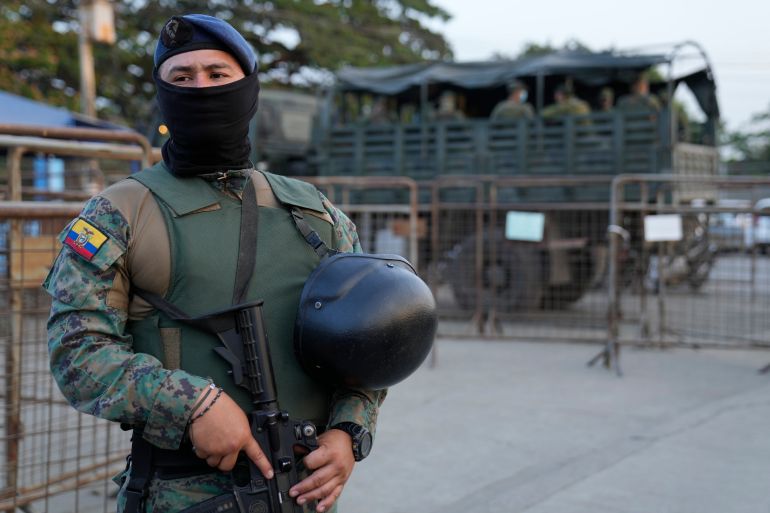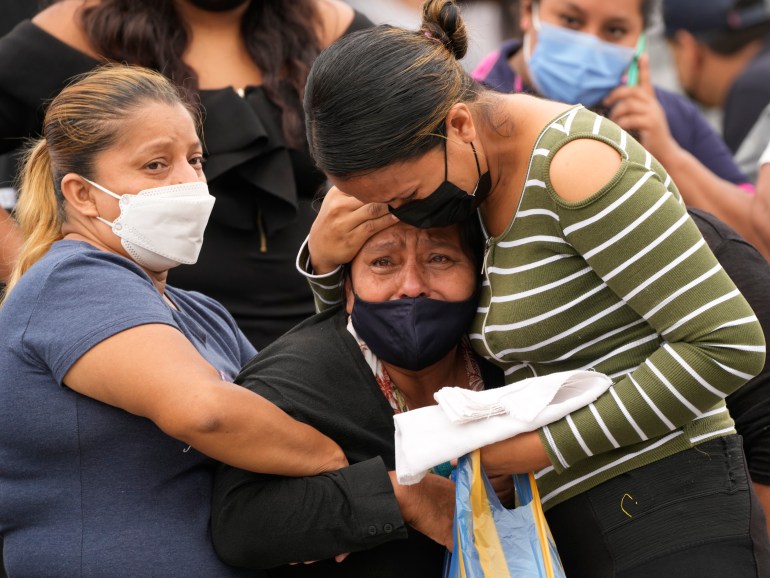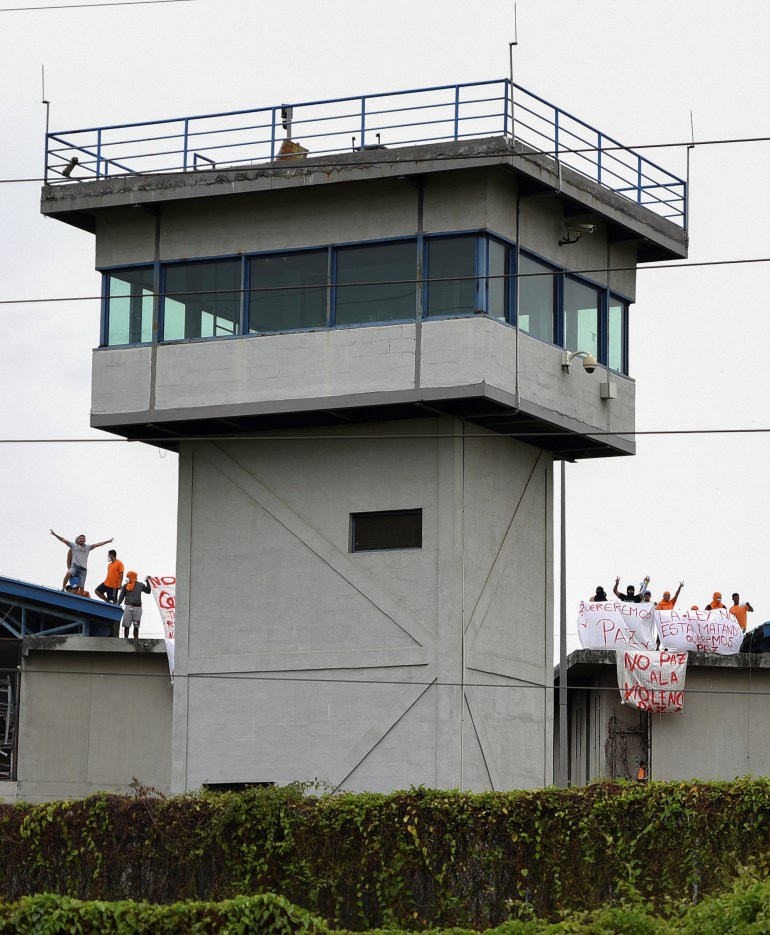Traumatised families demand reforms after Ecuador prison riots
Hundreds have died in a series of recent prison massacres, as critics say the government is neglecting its duty of care.

Guayaquil, Ecuador – Alex Burbano’s youngest brother, Jonathan, was quiet and serious. The 23-year-old was halfway through a two-year prison sentence when he was killed in a massacre at Guayaquil’s Litoral Penitentiary in September 2021.
It was one of the deadliest in a string of Ecuadorian prison riots last year, resulting in 119 deaths. Alex said his family received an email on the morning of September 28 warning that riots had broken out at Litoral, and they waited anxiously all day for news about Jonathan.
Keep reading
list of 3 itemsDozens dead in latest Ecuador prison riot
Ecuador imprisonment ‘almost a death sentence’: Amnesty
He finally called around 9pm via WhatsApp, a common form of communication within Ecuador’s prisons, and told his family he was OK – but they could hear explosions and gunshots in the background.
They never heard from Jonathan again. Witnesses later told Alex that a grenade had been detonated near his brother’s cell. An autopsy showed that he died of a traumatic brain injury.

It took authorities two days to confirm that Jonathan had died because they did not have records of who was incarcerated in each cell, Alex told Al Jazeera, noting that armed groups inside the prison control who stays where.
“The state has no control over anything,” he said from his home in southern Guayaquil. “If there is a weapon in a prison, if there is an explosive in a prison, you realise that there is no control. Where does it all come in? Through the front door.”
Ecuador’s national prison management system and the interior ministry did not immediately respond to Al Jazeera’s requests for comment.
Alex says he will never know who killed his brother, but he puts the ultimate responsibility on the Ecuadorian state. Along with relatives of other prisoners who died in the recent massacres, Alex helped form the Committee of Families for Justice in Prisons to push for reforms and to demand that the state be held accountable for decades of negligence.
“I am fighting, because as a human being [Jonathan] had rights, and he was in the custody of the state,” Alex said. “How can I not be angry?”
Calls for accountability
The government has acknowledged the deaths of around 400 prisoners in a series of riots in Ecuador’s penitentiaries since February of last year. But family members believe the real number is much higher, citing a steady stream of news about violence and assassinations of inmates.
Billy Navarrete, director of the Committee for the Defense of Human Rights in Guayaquil (CDH), said Alex and the other relatives who have banded together to seek prison reforms are taking the right steps.
The Committee of Families for Justice in Prisons offers an important platform for affected families to demand accountability, restitution and reparations from the state, he told Al Jazeera, adding that the CDH has been supporting their process.
According to Navarrete, who has been studying Ecuador’s prison system for more than three decades, the current crisis stems from years of government neglect, as the state has failed to invest in rehabilitation programmes or the training of guards. Corruption has flourished inside overcrowded facilities, he said, while prisoners and their families have suffered.
Kimberley, who asked that her last name be withheld for fear of retribution, said she had been paying criminal groups who controlled her husband’s wing of Litoral more than $100 a month for his food, phone and other fees.
It was a struggle, as she was unemployed and taking care of her four children alone – but she feared the worst if she did not comply. Then, during a February 2021 riot, her husband was strangled to death.
“I hope with all the strength of my soul that this does not go unpunished, that the president realises that he has to do something,” Kimberley, who is also a member of the Committee of Families for Justice in Prisons, told Al Jazeera.

“Because going to jail is like throwing a person into the lion’s cage.”
Over the past year, Ecuadorian President Guillermo Lasso has repeatedly denounced the criminal groups who control the prisons as bearing responsibility for the massacres.
In April, he announced plans to “strengthen prison intelligence” and “do a much deeper cleaning of weapons, explosives and materials that should not be in prisons and that have entered as a result of corruption”.
But human rights groups, including the United Nations, Amnesty International and the Inter-American Commission on Human Rights, have called for much more comprehensive reforms.
Last year, a special committee of legislators in Ecuador’s National Assembly presented more than 70 urgent recommendations, including restructuring the rehabilitation system and dismantling the criminal gangs operating inside prisons. In February, Ecuador’s human rights secretariat issued a nearly 200-page report also urging reforms. But such recommendations “haven’t translated into actions”, Navarrete said.
“This is what worries us,” Alex said. “It’s like [the prison riots] have become a habit, and there is no one willing to say: ‘This has to stop here. It must never happen again.’”